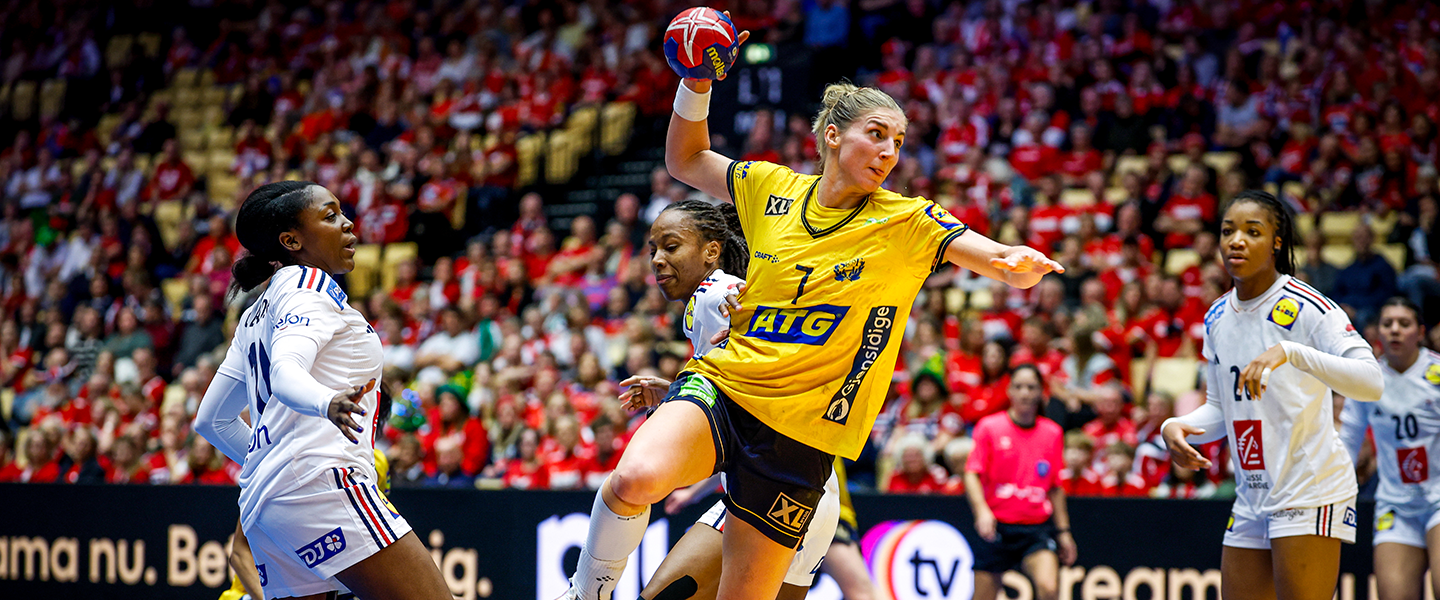Top European teams face off at the Women's EHF EURO 2024
28 Nov. 2024

The first edition of the Women’s EHF EURO with 24 teams at the start will throw off on Thursday, 28 November, in three countries – Austria, Hungary and Switzerland – as the top teams in Europe collide for the coveted title.
In the previous 15 editions of the competition, Norway have won the title nine times and finished on the podium 13 times, with Denmark being the only team to secure multiple titles, three, as France, Hungary and Montenegro have also won one edition of the EHF EURO.
The 24 participating teams have been divided into six groups of four teams each, with the top two sides in each group progressing to the main round of the EHF EURO 2024. There, two groups of six teams each will be formed, with the first two sides in each group progressing to the final weekend, which will take place in Vienna, Austria.
Four venues – two in Austria, Vienna and Innsbruck, one in Hungary, Debrecen and one in Switzerland, Basel – will host the competition, with the Wiener Stadthalle in the Austrian capital being the venue for the final weekend, which will see the semi-finals and the medal matches played.
Norway will be the favourites once again, in Thorir Hergeirsson’s swansong as the head coach of the Scandinavian team, after having won the competition five times, adding three more gold medals at the IHF Women’s World Championship and two more gold medals at the Olympic Games, the most recent coming in August, at Paris 2024.
The reigning European and Olympic champions will play in Group E, alongside co-hosts Austria, Slovenia and Slovakia, being heavily favoured, especially as they have an in-form Henny Reistad, the 2023 IHF Female Player of the Year, in fine form. However, they will miss right back Nora Mork, who is pregnant, and will not be on the court for the upcoming months.
France will also be one of the teams to watch, with Sebastian Gardillou making his debut in a major international competition, after replacing Olivier Krumbholz on the bench of the reigning world champions.
The powerhouse will play in Group C, where they face Spain, Poland and Portugal, once again being the team with the largest chances of progression and starting the main round with two points.
One other side which will probably contend for a medal, the runners-up at the EHF EURO 2022, Denmark, are also primed to be in contention, with a strong core which took the bronze medal in the previous two competition, the 2023 IHF Women’s World Championship and the Paris 2024 Olympic Games.
Denmark start in Group D, where they are due to face co-hosts Switzerland, Croatia and the Faroe Islands, in a group where the battle for the two places which will deliver the teams a main round spot looks to be very close.
Another well-rounded group will be Group B, hosted in Debrecen, Hungary, where all the four sides have chances of progression. Montenegro will see Suzana Lazovic make her debut on this stage as the new head coach of the side, taking on Serbia, Czechia and Romania, with every match being crucial.
In Group A, debutants Türkiye will aim to have a successful performance against co-hosts Hungary, Sweden and North Macedonia, while in Group F, the two hosts of the 2025 IHF Women’s World Championship, Germany and the Netherlands, are the favourites against Iceland and Ukraine.
The preliminary round of the competition, which is a qualification event for the 2025 IHF Women’s World Championship, with three teams making it to the world handball flagship competition, will take place between 28 November and 3 December.
The main round will be played between 5 and 11 December, while the semi-finals are scheduled for 13 December. The final and the bronze medal match will be played on 15 December.

